Futures Forum: Brexit: and an uncertain future for farming
The farming industry has come under fire for the bad state of nature in the UK:
Futures Forum: State of Nature: "intensive management of agricultural land had by far the largest negative impact"
The National Farmers' Union is determined to be bold post-Brexit:
Futures Forum: Brexit: and a 'new, bold ambition' for farmers
Earlier this week, they put on a bash at Westminster:
Back British Farming Day - what you told us
Last edited on: 15:09:2016
Our team talked to hundreds of MPs, Lords and members of the public at yesterday’s Back British Farming Day event in Westminster.
Back British Farming Day urged MPs to wear specially designed British wheat lapel badges to Prime Minister’s Questions and to sign the NFU’s post-Brexit pledge. Rural affairs Secretary of State Andrea Leadsom and farming minister George Eustice both supported the event and 100 new MPs and Lords signed the pledge.
Here’s what we heard.
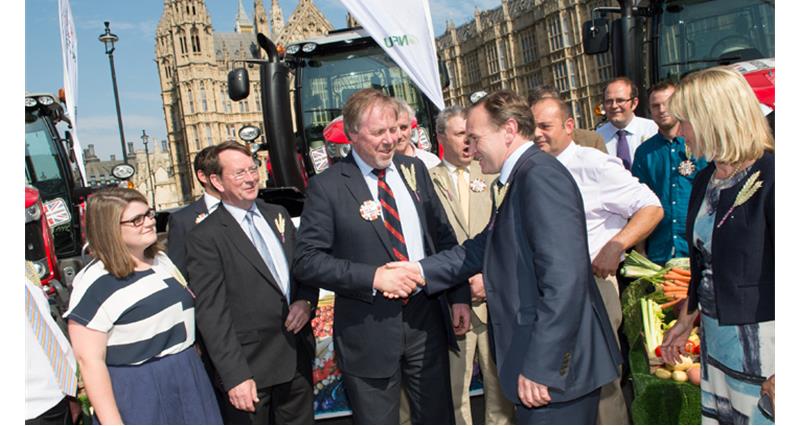 |
George Eustice – agriculture, fisheries and food minister and MP for Cambourne, Redruth and Hayle
I think the decision by the Treasury to make clear that we are going to continue to support financially farming at the same level as they are now until at least 2020 gives people that clarity and that certainty for the medium term.
We have got time now to put in the work to designing a post Brexitpolicy. We are in the early stages of that and have had meetings already with the NFU and with other farming organisations. We have got lots of interesting ideas that are coming forward – thoughts around risk management tools and whether we can make better use of them; thoughts around eco-systems services and how we can structure our approach on the environment more effectively than we do now; and also measures that we can take to encourage knowledge transfer and investment in farming.
So it is too early to say precisely what our post Brexit agricultural policy is going to look at. But there is a lot of optimism, a lot of excitement, and people are starting to think about possibilities now that we have got the ability to control and set our own destiny.
Food and farming is our largest industry in this country, it is worth over £108bn a year – bigger than aerospace and automotives put together. It is a huge industry. It employs millions of people and the truth is that a lot of our highly successful processing industry also depends on having a supply chain, and profitable, successful primary producers. So yes, agriculture being at the start of that food supply chain, part of a vitally important and very large industry, It is clearly going to feature very prominently in future policy.
|
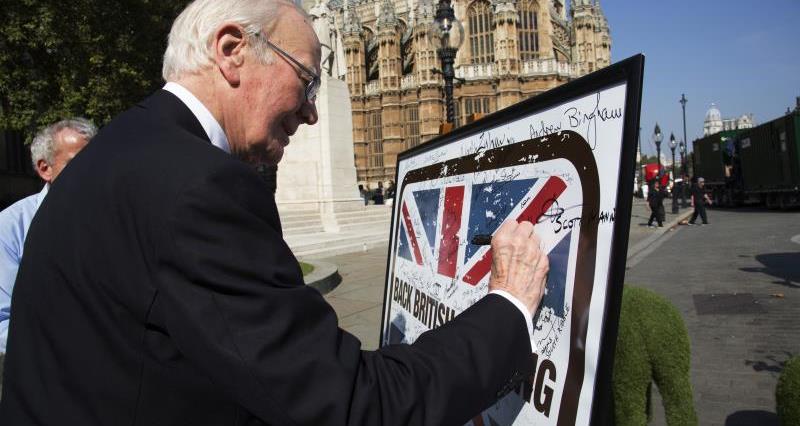 |
Lord Campbell of Pittenweem , Menzies Campbell
Farming is essential to the rural economy and helps maintain the rural environment and of course it is high time we made ourselves self sufficient. There is absolutely no reason why we shouldn’t be self sufficient, and I see at very short range the difficulties which my (farming) step son has. When the yields are high the prices are low, when the weather is bad the yields are poor. It has been in the last three or four years a very rocky ride that is why British citizens, whether in the House of Commons or House of Lords should be supporting British farming.
The government ought to give cast iron guarantees that the level of support which is currently available from Brussels will be maintained, not just until 2020 but so long as the United Kingdom is no longer a member of the European Union. People are criticialof the European Union and of the CAP, but there is absolutely no doubt that without that kind of financial support then farming in the United Kingdom would be on its beam ends.
|
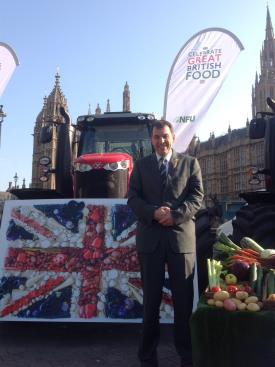 |
John Glen – MP for Salisbury and Parliamentary Private Secretary to Chancellor of the Exchequer Philip Hammond
I am acutely aware we are entering a time of opportunity but also uncertainty, and it is essential that we absolutely get it right for our farmers. So I am here today to show support to and acknowledge the enormous contribution that farmers make to the rural community and also to all households up and down the country in terms of the quality of produce they come out with.
I think the key thing is to ensure that farming is taken just as seriously as some of the apparently perceived ‘bigger’ industries in the country. We have to realise that getting the right deal for farming exports is as important as aerospace, manufacturing and other industries. It is critical that we get the right people doing that negotiations.
|
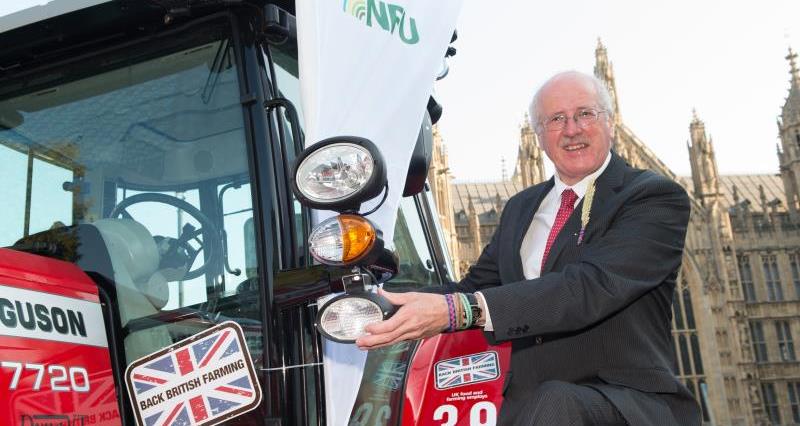 |
Jim Shannon, MP for Strangford speaking about Brexit’s implications
We are going to be better; we are going to do better. We will have new markets and new people to sell food to, and I think the future in my opinion is very bright and very positive, and I am excited. But we have to help our agri-food industry, we have got to make sure our farmers – the dairymen in particular – get the price for their product. That applies to all of them. Support the British farmers, support British food – and I think this is a wonderful opportunity for us to pledge that and do that ourselves.
|
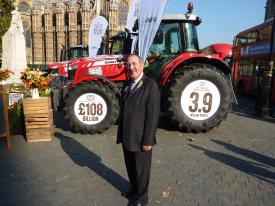 |
Ian Frood – beef and arable farmer from Essex and NFU National Livestock Board member
I think it is important that we highlight the importance of farming in the UK. In the post Brexit world we have a lot of work to do, and it is important that we get our story over both to MPs and the general public about how important food security is and how reliant the countryside is on British farmers.
Clearly as we move towards negotiations about the future of the UK or English farming industry we need parliament to understand the importance of the industry.
|
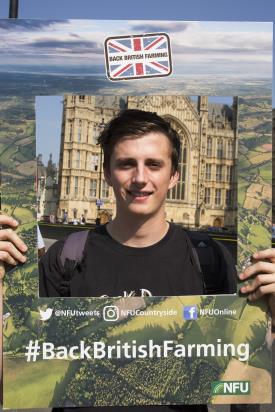 |
Rory Putnam, Penrith
My uncle is a sheep farmer in Devon and I know he works really hard, from five in the morning until nine at night sometimes. I think it’s really important to back British farmers because they look after our countryside and the future of farming is uncertain now that we’ve left the EU. Also the quality of British food is second to none, it just tastes better. |
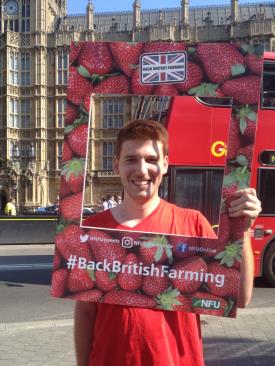 |
Alexander Suciu, London
I always buy British and look out for the Red Tractor logo! I am originally from Romania and British food has a great reputation across Europe and the world. That is why we should all back British farming, to make sure this reputation lasts. |
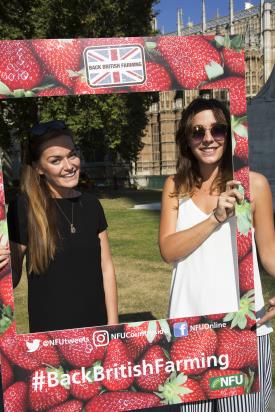 |
Georgina Haslan, London
I used to own a restaurant in Bristol and the ingredients were always bought from local merchants. Even in London I buy local, it’s not as hard or as expensive as people may think. It’s much fresher and just tastes so much nicer. |
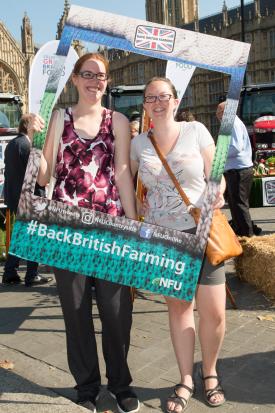 |
Sara Schulze, Canada
If you buy your own country’s produce, then you are putting money back into your own economy and supporting the people who tend your country’s land. It’s sort of a patriotic concept I guess. |
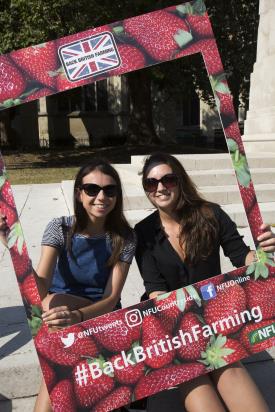 |
Zoe Jackson, London
British food tastes much better and fresher. It’s also better for the environment as there is less pollution created because there’s less transport involved. I buy British all the time! |
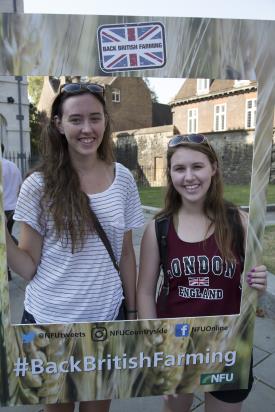 |
Molly Graham, USA
As a student, it can at times be expensive to buy fresh, local produce but it’s important to support your own country’s economy. I think Back British Farming is really great, there’s not much like this in the U.S that I know of. |
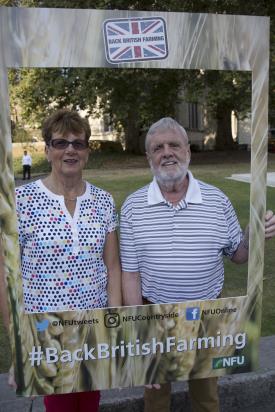 |
Pat and Miles McEvoy, Chorley
We have to back British farmers because they work so hard. My grandad was a farmer and he was a very hard-working man. Driving along at night, you see them working at 10 on the night sometimes. It’s pretty amazing. |
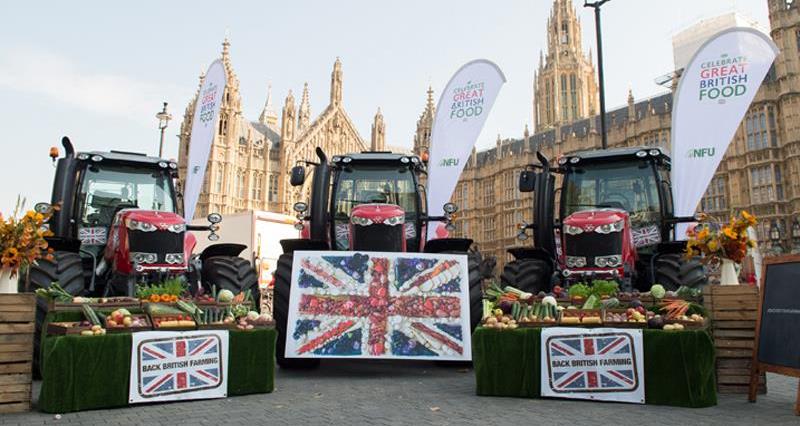 |
Shena Renton, Edinburgh
It’s home-grown, you’ve got to support it and we’ve all got to start now. British food is fresher and quicker and it’s better to have on your plate! |
Back British Farming Day - what you told us
.
.
.

Have your say on this